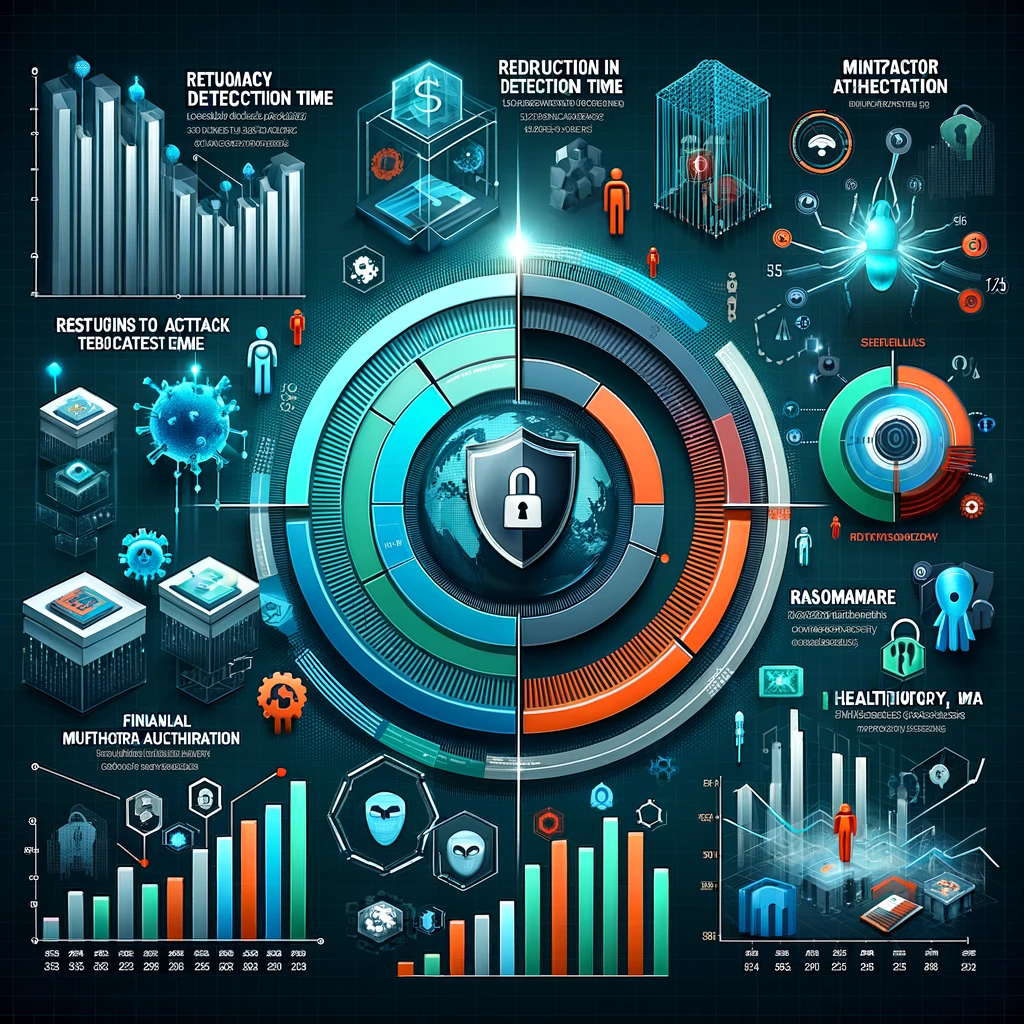Our latest cybersecurity news brought to you…
State of Security 2024 Report Reveals Growing Impact of Generative AI on Cybersecurity Landscape
Splunk, in collaboration with Enterprise Strategy Group, has released the “State of Security 2024: The Race to Harness AI” report, detailing how 1,650 global security leaders are adapting to the challenges and opportunities presented by generative AI (Gen AI) in cybersecurity. The report highlights that while many organizations are integrating Gen AI into their operations, there is a significant lack of clear policies and understanding of the technology’s full implications. Amid high adoption rates, leaders are split on whether Gen AI will benefit defenders or threat actors more. The study also addresses the role of Gen AI in hiring, suggesting it could help fill the skills gap more efficiently and enhance productivity in cybersecurity roles. –CXOtoday
CISA Issues Warning About GitLab Password Reset Vulnerability
CISA just sounded the alarm on a major security flaw in GitLab, the go-to platform for software development. This vulnerability, dubbed CVE-2023-7028, lets hackers dodge password reset protections, potentially breaching sensitive data and projects. With GitLab powering operations for over 38,000 companies globally, the risk is massive. CISA advises swift action: patching, beefing up monitoring, enabling multi-factor authentication, and auditing configurations regularly. It’s a stark reminder of the ongoing battle against cyber threats. –Cyber Security News by Guru Baran
The cybersecurity market is booming, projected to reach $290 billion by 2027. However, concerns about AI’s dual role in cybersecurity and cybercrime are reshaping the landscape. With AI’s potential to enhance phishing attacks and exploit vulnerabilities, businesses face a talent shortage in adapting to evolving threats. Investments in cybersecurity are expected to rise to 14% of total IT budgets by 2024. While AI poses risks, it also offers opportunities for threat detection and containment. For instance, IBM reports that organizations leveraging AI and automation can contain breaches faster than those without, highlighting the potential benefits amid the challenges posed by AI-driven cyber threats. –Global Data
Ukrainian REvil Hacker Sentenced to 13 Years and Ordered to Pay $16 Million
A Ukrainian hacker, Yaroslav Vasinskyi, has been sentenced to over 13 years in prison and ordered to pay $16 million in restitution for orchestrating thousands of ransomware attacks. Working with the REvil group, Vasinskyi conducted over 2,500 ransomware attacks, demanding over $700 million in cryptocurrency. He was extradited to the U.S. in 2022 and pleaded guilty to multiple charges, including conspiracy to commit fraud and money laundering. The U.S. Department of Justice also seized millions of dollars in ransom payments linked to the attacks. This case comes amid broader efforts to combat ransomware, with recent indictments targeting other cybercriminals involved in similar activities. –The Hacker News
Urgent Cybersecurity Risks Identified in Paris 2024 Olympic Games Online Infrastructure
Cybersecurity experts have identified urgent risks within the online infrastructure of the Paris 2024 Olympic Games. Outpost24, a leading cybersecurity provider, conducted assessments revealing vulnerabilities that could compromise the integrity and security of the event’s digital systems. These risks underscore the critical need for robust cybersecurity measures to safeguard against potential cyber threats during the Olympic Games. –Outpost24 by Thomas Moore
World Password Day: Strengthen Your Online Security with Expert Tips
Despite their prevalence, weak passwords remain a target for cybercriminals, with millions of attacks attempted yearly. To counter this, experts recommend crafting strong yet memorable passwords using personal associations and embracing non-standard options like emojis. Additionally, employing a one-account-one-password strategy and utilizing password managers can further enhance online security. By adopting these proactive measures, individuals can safeguard their personal data and reduce the risk of falling victim to cyber attacks. Learn more about these essential tips and bolster your online defenses today. –The Cyber Express by Alan J.
Ed-Tech Companies Are Vulnerable to Cyberattacks. A New Federal Effort Wants to Help
The U.S. Department of Education is launching the Partnership for Advancing Cybersecurity in Education (PACE) to address rising cyberattacks on educational technology. Collaborating with UC Berkeley’s Center for Long-Term Cybersecurity, PACE will bring together ed-tech vendors and cybersecurity experts at a summit in October to develop secure design principles and combat cyber vulnerabilities. This initiative aims to protect school districts that have become increasingly susceptible to attacks, especially with the rise of digital learning tools. Educators can join the effort to secure educational environments from escalating cyber threats. –EducationWeek, by Alyson Klein
Women in Tech: “Be curious, be willing to work hard, and be willing to speak up”
Dana Wang, Chief Architect at OpenSSF, shares her journey from physics to cybersecurity, highlighting her commitment to enhancing open source security. With a diverse background, Dana emphasizes the importance of curiosity, hard work, and speaking up in the tech field. She discusses initiatives at OpenSSF aimed at promoting security in open-source software, encouraging women’s participation, and tackling challenges like AI security. Dana’s advice for those new to cybersecurity: leverage free resources and join community projects to gain hands-on experience. Her story is an inspiration for anyone looking to break into cybersecurity or advance their tech career. –Devmio, by Dana Wong
Fostering leadership excellence: Empowering women to lead through inclusive culture
Creating an inclusive culture is essential for leadership excellence, especially in empowering women to ascend to leadership roles. Organizations must integrate diversity, equity, and inclusion as core aspects of their culture, not just as mere buzzwords. This involves providing equal growth opportunities, breaking down barriers, and challenging gender stereotypes. Steps to foster such a culture include leadership commitment to diversity initiatives, cultural awareness training to combat unconscious biases, and creating equitable opportunities for all, especially for women who re-enter the workforce after breaks. By prioritizing and embedding these strategies, organizations can drive innovation and business success, making it possible for women to lead effectively and contribute meaningfully. –ET Edge Insights, by Renu Shekawat
Click for more of our recent cybersecurity news!



